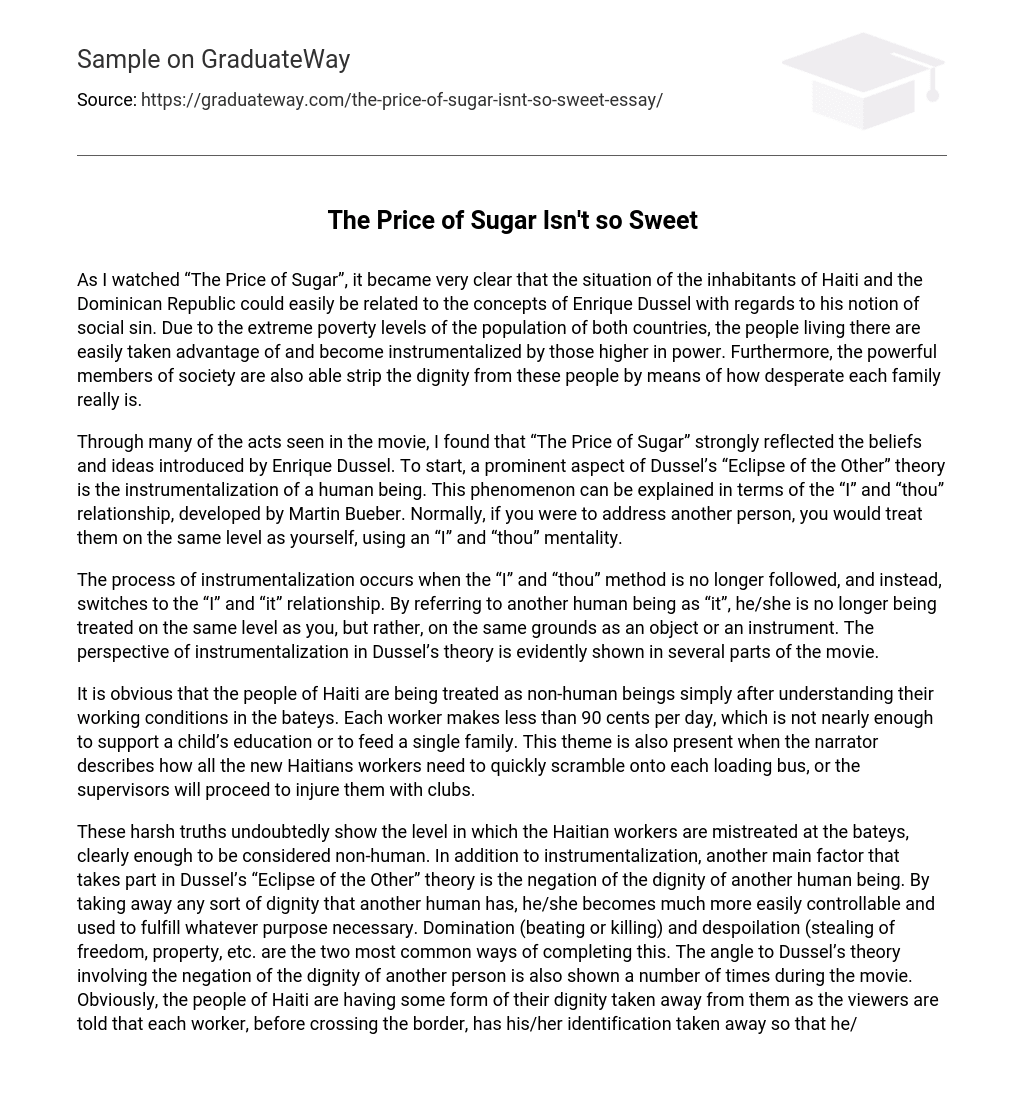While watching “The Price of Sugar,” I realized that the predicament of the residents in Haiti and the Dominican Republic can easily be associated with Enrique Dussel’s concept of social sin. The impoverished state of both nations makes their inhabitants vulnerable and susceptible to exploitation by those in positions of authority. Additionally, the affluent members of society can further degrade these individuals by exploiting their desperate circumstances.
After watching the movie, I noticed that “The Price of Sugar” effectively portrayed the beliefs and concepts introduced by Enrique Dussel. One significant aspect of Dussel’s “Eclipse of the Other” theory is the instrumentalization of a human being. This can be understood through Martin Bueber’s “I” and “thou” relationship, where individuals should treat others as equals, adopting an “I” and “thou” mindset.
The process of instrumentalization occurs when there is a shift from the “I” and “thou” method to the “I” and “it” relationship. When we refer to another person as “it”, we no longer view them as equals but rather as objects or instruments. Dussel’s theory includes the perspective of instrumentalization, which is clearly depicted in various parts of the movie.
Clearly, the people of Haiti are being dehumanized due to their harsh working conditions in the bateys. Each worker earns less than 90 cents per day, an inadequate amount to provide for a child’s education or a family’s sustenance. The dehumanization is further exemplified by the narrator’s depiction of how the new Haitian workers are forced to hurriedly board overcrowded buses, or face physical harm from supervisors wielding clubs.
The mistreatment of Haitian workers at the bateys demonstrates their inhumane treatment. According to Dussel’s theory of the “Eclipse of the Other,” the denial of a person’s dignity is another contributing factor. Stripping someone of their dignity makes them easier to control and manipulate for any purpose necessary. This is typically achieved through domination (physical abuse or even murder) and despoilation (taking away their freedom and belongings). The movie also highlights instances where the dignity of the Haitian people is negated. For instance, their identification is confiscated at the border, limiting their ability to seek alternative employment beyond the plantation.
Furthermore, after working all day, the workers are required to reside in a cramped living space along with 60-100 other workers. This residence is constantly monitored to prevent any attempts to escape. It is evident that by denying the workers entry into the plantations and taking away their freedom, the batey workers are stripped of their dignity.
Upon observing the compelling and confronting events portrayed in the film “The Price of Sugar,” I realized a glaring correlation between the depicted situations and Enrique Dussel’s concept of social sin. The impoverished familial conditions endured by countless Haitians serve as concrete manifestations of Dussel’s core tenets of instrumentalization and denial of dignity outlined in his governance theory, ultimately affecting the batey laborers. A transformative resolution lies in effecting a shift within both our personal lives and the broader global community.





